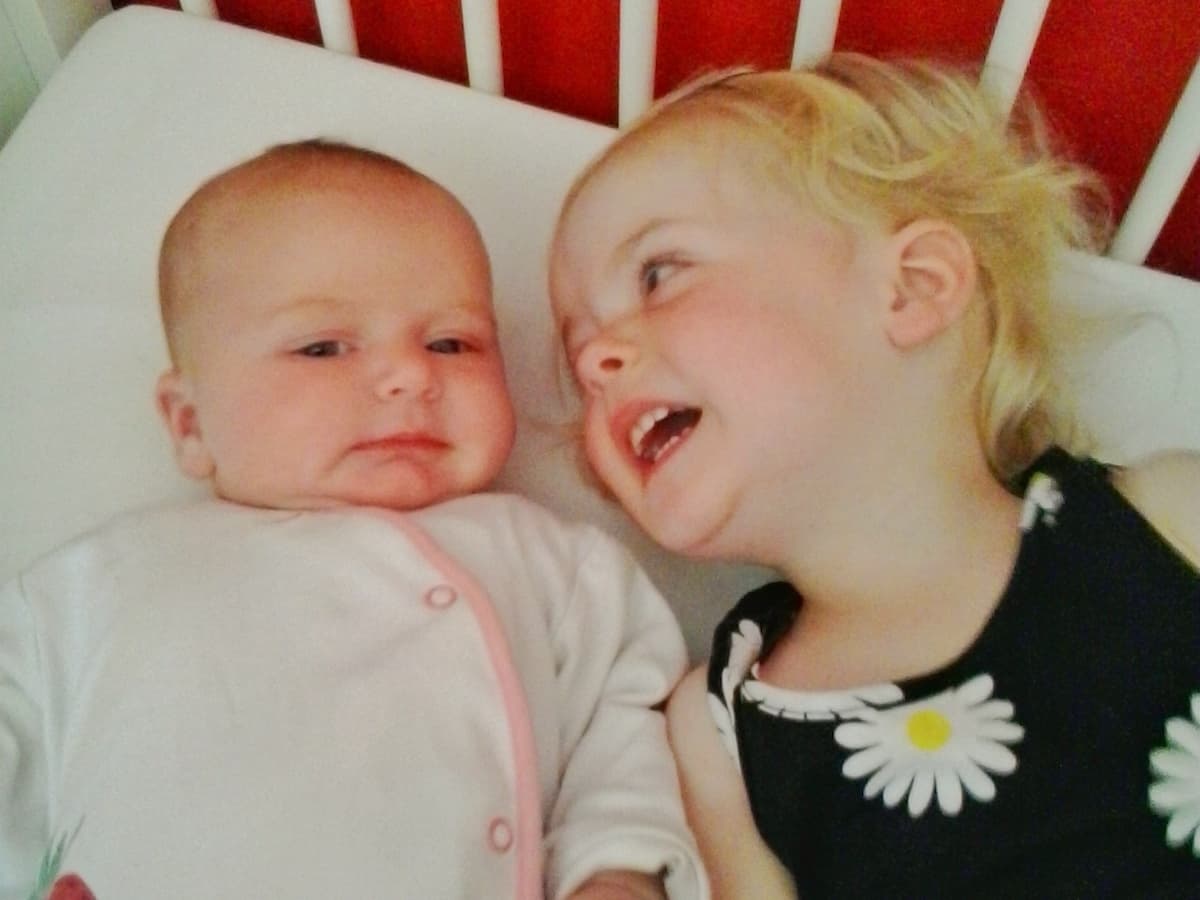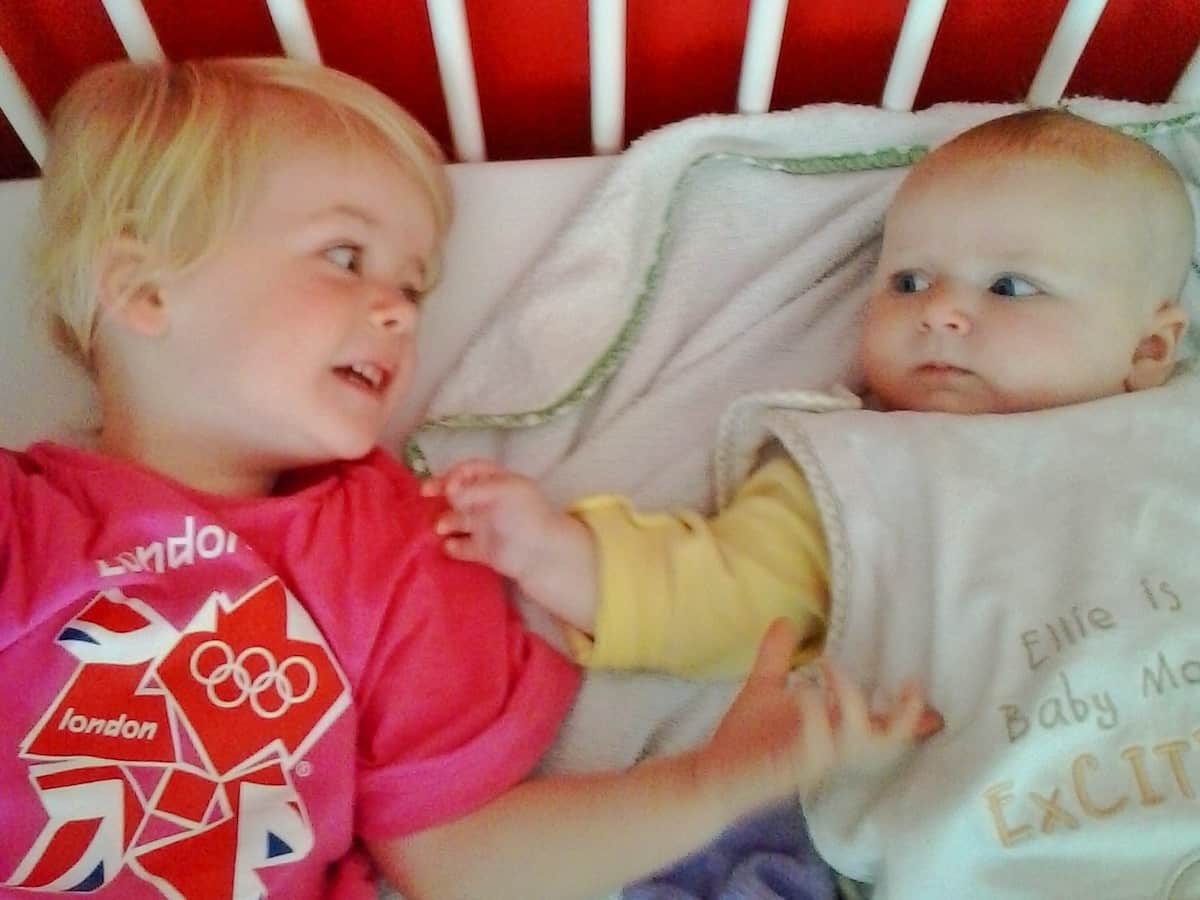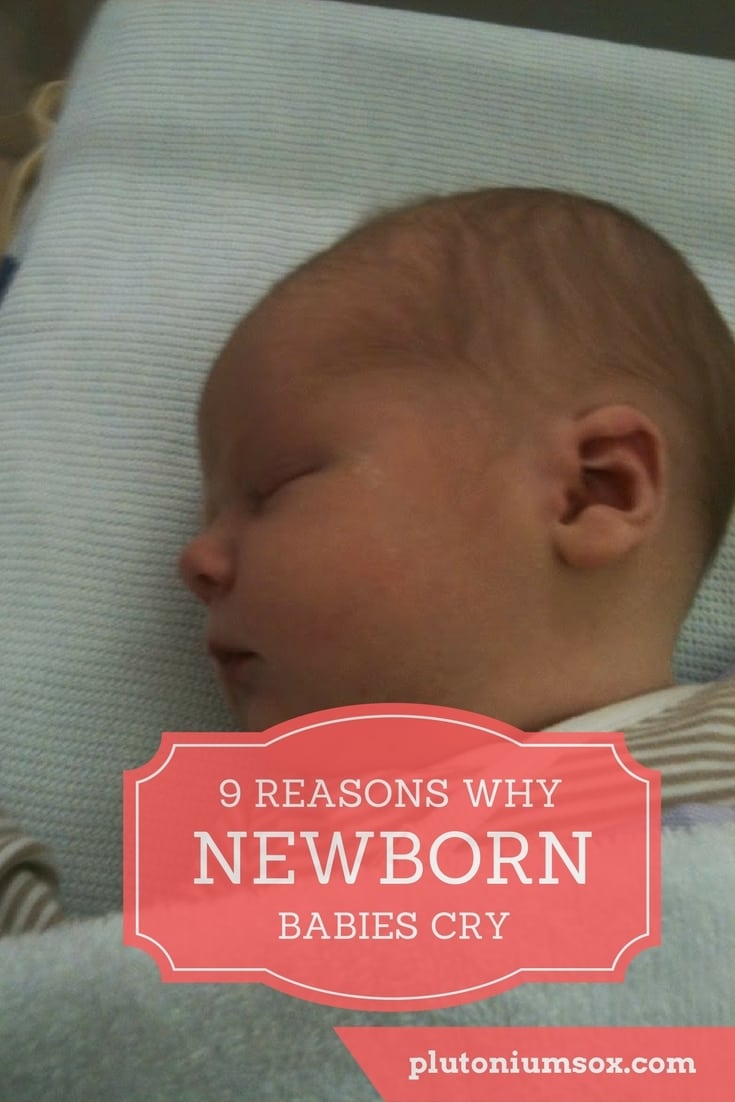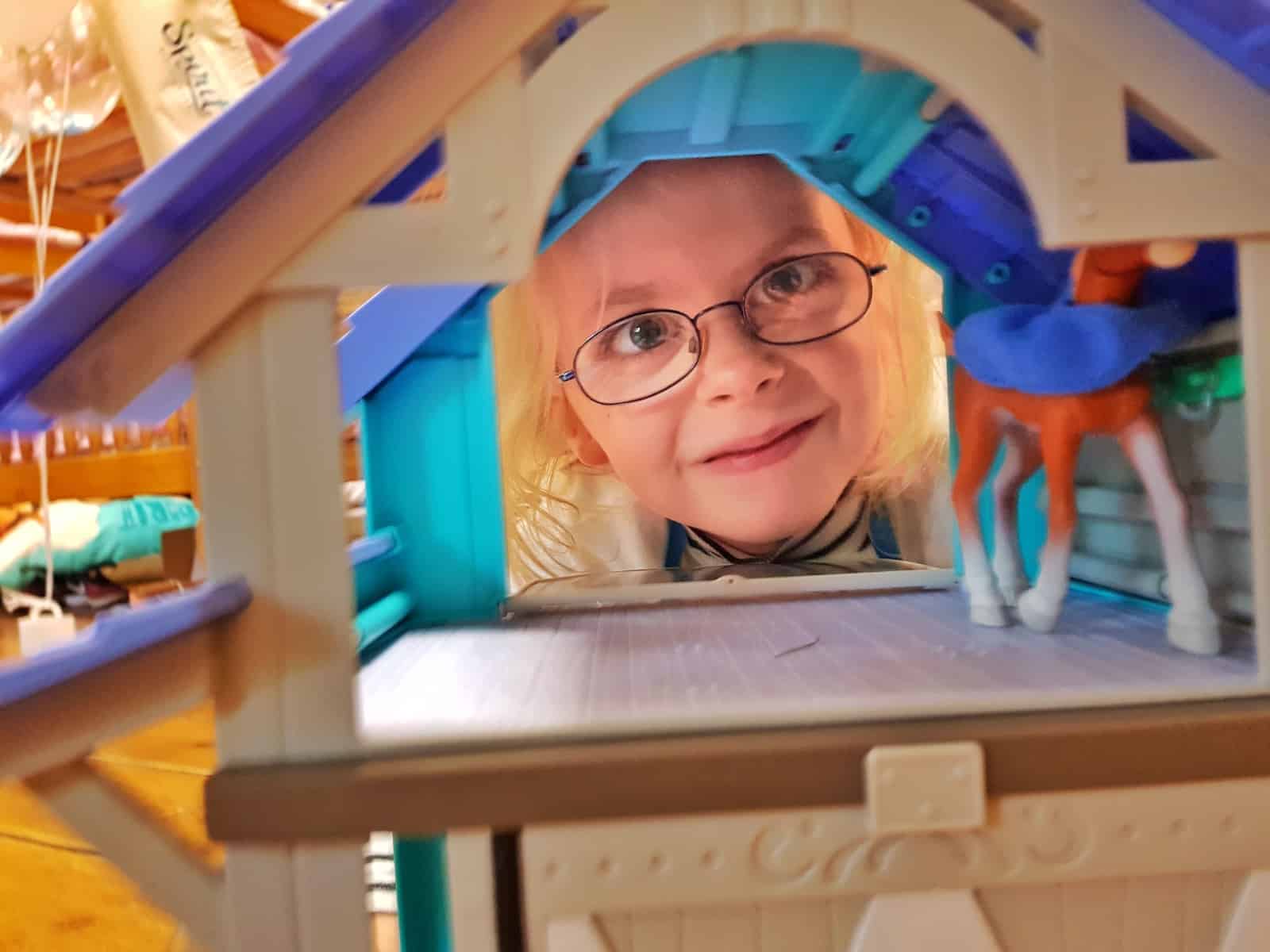9 reasons why newborn babies cry
I’ve never written my birth stories on my blog, although I have mentioned them in passing. The truth is, neither birth went the way I wanted it to. I’d heard from friends before I had the girls that giving birth was empowering. It wasn’t for me. I was induced with both babies. My first birth was frightening and ill-informed. The second was lonely, with nobody there to fight my corner over the type of birth I wanted when the midwife wouldn’t listen to me.
So when each baby finally came along, all I wanted to do was go home. Both were born at night and by first thing the following morning, I was up out of bed with my bags packed waiting to go home.

The lonely days after childbirth
Bringing home a baby is frightening. Neither of my girls were latching properly to feed when we came home, but I wasn’t willing to spend any more time in hospital.
At least at home, my husband was there to support me. Although neither of us had a clue what we were doing, we were in it together. Those newborn days are equally beautiful and horrendous. And the darkest of times came when the baby cried. That ear-splitting, pitiful cry that told you something was wrong, but you just couldn’t work out what that tiny little bundle needed from you.
Reasons why newborn babies cry
I’ve been given some amazing tips from healthcare brand Care and Penny Lazell, a qualified midwife and independent health visitor about the top nine reasons why newborn babies cry. I hope this is helpful to anyone with a little one because I truly wish I’d read these tips when my two were tiny. So a last word from me before I share these little gems of information – hang on in there, it does get easier.
1. Hunger
Babies cry pretty quickly when they get hungry because they’re not able to anticipate hunger. Penny says that if a baby hasn’t been fed for 2-4 hours then they may well be hungry.
Just to add to this, one of my babies was a cluster feeder. Nobody ever told me that she might breastfeed for 12 hours straight. So after several nights of trying everything to get her off to sleep because ‘she couldn’t possibly be hungry’, I started to just let her feed. And feed. And feed. Eventually, she’d stop and she’d sleep for a good few hours. It was such a relief for us all. And if your baby does this, don’t worry it doesn’t last forever! By 8 weeks old, the feeding time cut down and by 10pm she’d be asleep – and she’d stay that way until 6am.
2. Wet or dirty nappy
Penny points out that all babies are different and some don’t mind if their nappy is slightly wet or dirty, whilst others get very distressed by it. She recommends changing them regularly to keep them clean and happy.
I definitely had one of each – a baby who would sleep through anything, and one who would demand a change as soon as she got a bit damp. Interestingly, these days the baby who didn’t mind being dirty is a little whirlwind who is constantly messy and grubby. The fussy one remains that way – she has to look immaculate at all times and can’t stand to have dirty hands or face.
3. Tiredness
Babies can find it difficult to calm down when they get overtired. Penny suggests allowing them to lie down in their cot or basket with you nearby. Trying someone different to sooth them may also help them get to sleep.
4. Pain
Penny notes that cries of pain can sound different to other cries. They may be sudden and high pitched. Penny gives the crucial advice to trust your instinct. If you think your baby is in pain, check them over and take their temperature. If you’re worried, seek medical advice.
5. Boredom
I was fascinated to hear that babies crave attention so they can learn. They get bored quickly, so it’s important to set aside time to provide stimulating activities such as talking or singing to them. They enjoy eye contact and the sound of your voice.
6. Over stimulation
Babies can only cope with a certain amount of stimulation at one time. If this is exceeded, they can become difficult to settle. If they’re fretful and don’t settle when you rock or cuddle them, Penny suggests taking them to a quiet, dimly lit room and talking to them quietly whilst holding them still. They may take a while to settle but keep going with it.

7. Wanting to be cuddled
Having been in the womb for nine months, the world can feel like a scary place for a newborn. Cuddling them is important for both their emotional development and their ability to self-regulate. Penny reassures new parents that cuddling babies won’t make them clingy, in fact it will help them to become more independent.
8. Temperature
Newborns can’t relate their own temperature, so parents have to do it for them. You shouldn’t cover their heads because this will prevent them from losing heat. If babies look red when crying, they may be too hot. You should remove a layer of clothing and check their temperature to ensure that they’re not too hot due to a fever. Babies may also cry because they’re too cold.
9. Transient lactase deficiency
There is evidence that babies’ immature digestive systems can struggle to make sufficient lactase to digest the lactose found in both breast and formula milk. This can cause colicky symptoms and is referred to as Transient Lactase Deficiency.
The National Institute of Clinical Excellence (NCE) and the NHS Choices website both suggest that Transient Lactase Deficiency could be an underlying cause of colic. They say that a week’s trial of a Lactase Enzyme Drop is worth trying for colicky babies.
Penny confirms that it is a common occurrence in young babies. It can make them uncomfortable and therefore hard to settle. She says that giving a lactase enzyme drop with feeds can often resolve the issue without changing what the baby is being fed.
Care Co-Lactase Infant Drops are designed to reduce the lactose content in milk. This helps to make lactose easier to digest without delaying the feeding process. They are suitable for use from birth and are available at Asda in store or online, as well as in independent pharmacies.





![9 ways to make your house more eco friendly [AD]](https://plutoniumsox.com/wp-content/uploads/2020/09/20200917_105806-01-scaled.jpeg)

